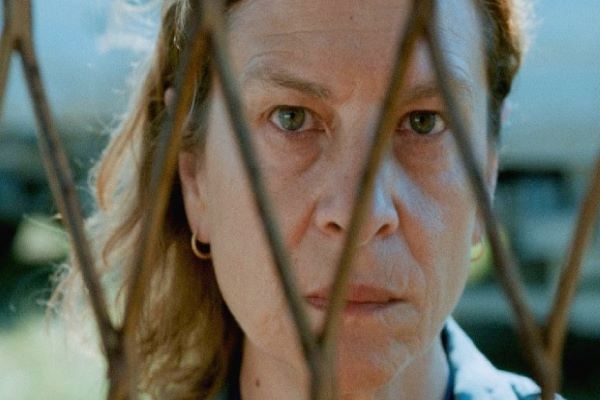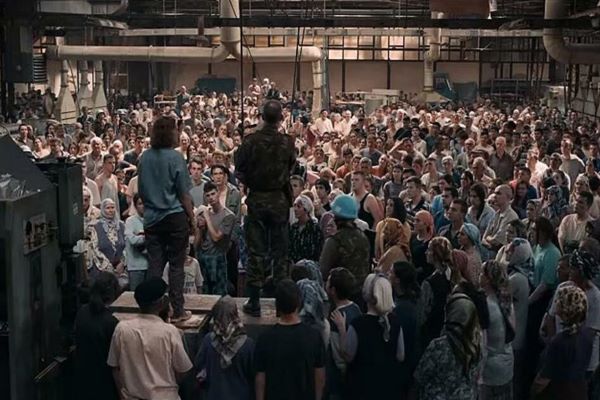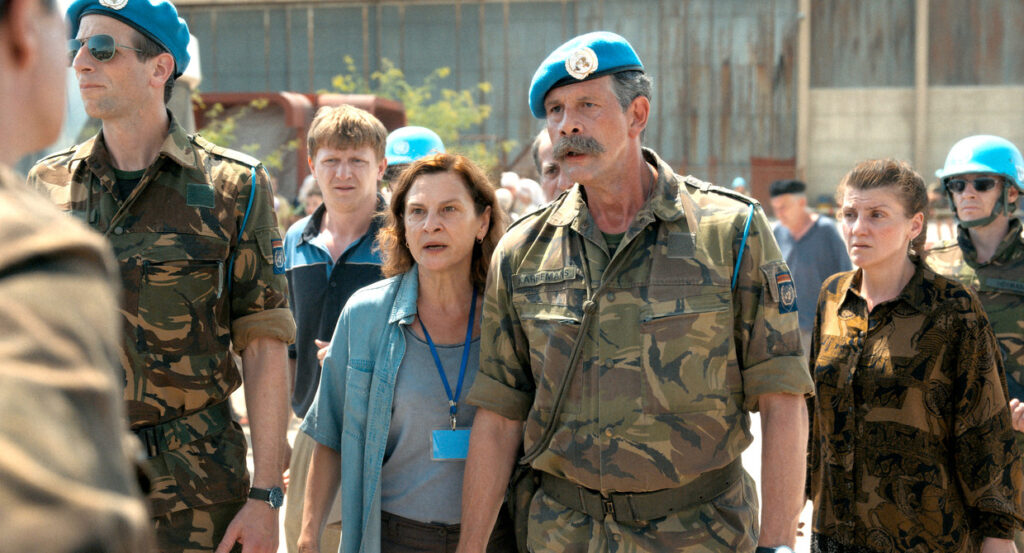Jasmila Zbanic’s Quo Vadis, Aida? is a heartbreaking writ of the Srebrenica genocide. Under the command of notorious military general Ratko Mladic, 8372 Bosnian Muslim men and boys were brutally murdered, and countless women were raped by the Bosnian Serb Army of Republika Srpska (RS) on 11th, 12th, and 13th July 1995. These inhuman atrocities rendered more than 30,000 people homeless. The film also shows how the United Nations, NATO, and world leaders failed to save Srebrenica and its countless innocent people. A little more empathy, urgency, and humanly acts could have saved Srebrenica, which was a designated United Nations Safe Area.
The film starts with the Army of Republika Srpska taking over the city of Srebrenica on 11th July 1995. More than 30,000 Bosnian Muslims are forced to leave their houses, and they take shelter in the nearby United Nations camp in Potocari. But, only a few hundred citizens can be placed inside the camp. So, all the remaining citizens await their destiny outside the camp. An ex-schoolteacher named Aida (Jasna Duricic) works for the UN as an interpreter. In spite of having contacts with the UN authorities, she is not able to get her husband Nihad (Izudin Bajrovic) and son Hamdija inside the camp. Later, she manages to get Nihad selected as a negotiator with the notorious RS general Ratko Mladic (Boris Isakovic). So, Nihad and Hamdija are allowed inside the camp. The UN Dutchbat commander Thomas Karremans (Johan Heldenbergh) reaches out to the UN Headquarters and NATO for an airstrike to resist Mladic’s troops, only to know that the top leaders are on vacation. Without any inhibition, The RS Army under the command of Mladic starts massacres and manslaughter.

The negotiation begins between Mladic and Bosniaks under the supervision of the UN. Mladic agrees to transport civilians to safety under the UN escort. Instead of providing safety, he orders to separate Bosniak men and boys from their family members and transport them by buses without UN escort. Aida pretty much realizes that the men and boys will be murdered and the rest will be brutalized. She tries to save her husband and sons showing them as UN workers and begging on her knees to Major Franken (Raymond Thiry) but fails to get her helpless appeal granted. Nihad, Sejo, and Hamdija are taken away by a bus. All the transported men and boys including them are herded into a building and summarily executed by machine gunfire. Years later, Aida returns to Srebrenica and her old family apartment only to find out that it has been occupied by a Serb family and one RS soldier. Later, in a building, she recognizes the exhumed clothing of her sons and breaks down. Again, she joins a school as a teacher and the film ends with her seeing the old photographs of her family and watching a school musical performance.
The world has witnessed deadly wars, fights, and aggressions for decades and centuries. Those have always resulted in devastations, massacres, and killings. There is no end and it goes on even in the modern world. The world civilizations were badly damaged in World War I and World War II. The reasons for any genocide could be various like religious hatred or military aggression. Whatever be the reasons, wars and genocides always violate the basic principles of humanity. Those can only spread violence, hatred, bloodshed, and atrocities. The basic principles of humanity like Love, peace, rejoice, sympathy, dignity, compassion, kindness, gentleness, happiness, etc. are wiped out. The world appears to be bleak and hopeless.

Bosnia is for all the Bosnians like Bosniaks, Serbs, Croats, Turks irrespective of societal, cultural, racial, and religious differences. But, Ratko Mladic wanted to wipe out Bosniaks from eastern Bosnia, which resulted in the Srebrenica genocide. Their only crime was that they were Muslims. There is no denial that Bosniaks too attacked the Serbs, but, that can never be a justification for genocide. Though Mladic and his troops are the butchers of Sberenica, the UN and NATO cannot deny their utter failure in saving it and its countless innocent people. The UN had already declared it as a “Safe Area” and it was their duty and responsibility to ensure the safety of its citizens. But, they utterly failed in their foreign policies and taking timely decisions. With only 300 soldiers, it was not possible for Dutchbat commander Thomas Karremans to stop aggressive Mladic and his soldiers and accommodate more than 30000 civilians in a small camp. The UN and NATO should have sensed the situation on the ground and deployed more forces. When Sberenica was being butchered, the UN and NATO leaders were on vacation. Even the UN commanders failed to provide escorts when Bosniak men and boys were being transported to the slaughterhouse. This negligence and inaction have no excuse. The UN and NATO utterly failed to ensure the safety of their designated “Safe Area” Srebrenica and its innocent citizens.
The most horrifying is that the genocide perpetrators are living together with the victims in present-day Srebrenica. Many perpetrators have not been arrested. One such man is shown in the film. The agonies of the victims most certainly get multiplied to see those criminal faces. In the last scene, the children open their closed eyes in a musical performance. Children must never close their eyes to this horrendous genocide, but dig deeper to discover more. This tragedy must never repeat again.
Jasmila Zbanic’s screenplay and direction are based on her own personal experiences of the Srebrenica genocide. Though Quo Vadis, Aida? is fiction, it consists of heartbreaking true events of the genocide. So, this film is a reflection of her own agonies of the massacre. Though Jasna Duricic is herself a Serb, she did not care about the hatred and backlash and portrayed the role of Aida. She is so brilliant in the film that her portrayal of Aida reminds us of the miseries of countless innocent Bosniaks. The handheld cinematography by Christine A. Maier and the fast editing by Jaroslaw Kaminski have made this film extremely dynamic and look like a crime thriller. Quo Vadis, Aida? was selected to be screened at the 77th Venice International Film Festival and the 2020 Toronto International Film Festival. It was nominated for the Best International Feature Film at the 93rd Academy Awards and the Best Film Not in the English Language at the 74th BAFTA awards.

